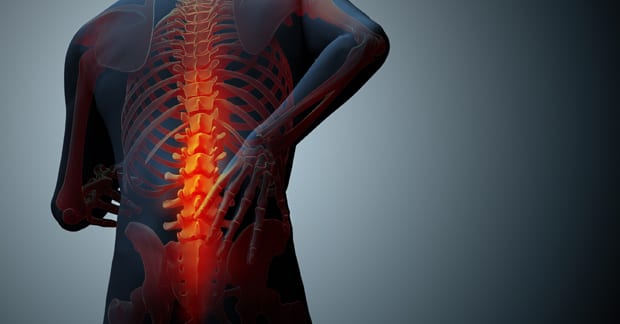Disorders such as fibromyalgia, whiplash, and irritable bowel syndrome share the common symptom of muscle hyperalgesia (more sensitive to painful pressures and stimulation). Obviously, more sensitive patients may find it more difficult to stress their bodies with stretching or physical exercise. If you are more sensitive to pain, you may be more likely to consume pain relief or anti-inflammatory medications. These drugs can have unwanted side effects when taken over the long term.
In May 2007, the European Journal of Pain reported on a scientific study of the muscle dysfunction called muscular hyperalgesia in patients with disk herniations. The researcher team, based in Denmark, studied whether generalized deep-tissue hyperalgesia could be demonstrated in a group of patients with chronic low-back pain and intervertebral disk herniation. Twelve patients and twelve controls were exposed to painful stimulation at a shoulder and a leg muscle. They used deep pressure and injections of salt water to test how the patient reacted.
Patients with chronic low back pain and disk herniations demonstrated significantly higher pain intensity, duration, and larger areas of pain referral following such stimulation.
Whether consuming pain medications over many years is a wise option is certainly debatable. Studies of chiropractic care to treat back pain have shown good results with extremely rare risks/side effects. The adjustments are directed at the spinal joints and disks to affect the movement of the vertebrae and decrease pain.
It's important to understand that fibromyalgia is a complex disease with many theories as to its cause. It's unlikely taking a pill will be the total solution to the problem. We know that muscle pains are very common and exercises seem to improve the pain. There are also other issues to consider. The structures of the spine (such as the disks) help to guide and restrict movement, but when injured can be a significant source of pain. Making sure the spine is flexible from daily stretching, and not under undue stress (such as from excess weight) are important adjuncts of care.




